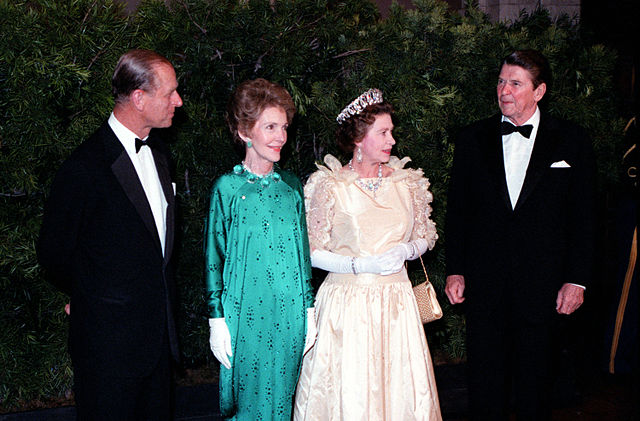Queen Elizabeth II, the United Kingdom’s longest-reigning monarch, died Thursday. Foreign policy leaders and experts at Stanford celebrated her lifelong devotion to her nation and contribution to cultural unity, while some criticized the colonialist legacy of her reign.
The mixed response mirrors the international reaction to the Queen’s death. National leaders from around the globe sent their condolences, praised her devotion to her subjects and intend to attend her funeral. However, citizens, as well as political party leaders in former British colonies such as India and African nations, also criticized her lack of acknowledgement of the British empire’s colonial atrocities.
“For more than 70 years, Queen Elizabeth II led a life entirely dedicated, not to herself, but to the service of her country and subjects,” wrote Hoover Institution Director and former Secretary of State Condoleezza Rice in a statement to The Daily. “Her Majesty remained always a steady hand, even throughout the most trying of times. Our hearts both break for and stand in solidarity with our British friends. May God bless her memory and may she rest in eternal peace.”
The queen ascended to the throne after the death of her father, King George VI, on Feb. 6, 1952. She took a ceremonial role, as the monarchy lost governing power in 1649, but she used her status to provide leadership as the United Kingdom culturally transformed from early 20th century imperialism to a more liberal era. She formed a bond with her people by delivering regular televised addresses from early in her reign. Increasingly, the queen opened public access to her family with regular events and several documentaries.
Christophe Crombez Ph.D. ’94, a political science professor and senior research fellow at the Freeman Spogli Institute for International Studies (FSI) Europe Center, wrote that Queen Elizabeth “did a great job” staying within the boundaries of her constitutional monarchy and providing “a sense of unity and purpose to a country that otherwise seems a bit lost and hasn’t dealt well with its reduced stature in world politics.”
Crombez also wrote that respecting the limits of the monarchy’s power is especially valuable in today’s polarized political climate. While her death’s impact on British policies will be minimal, “the disappearance of a symbol of UK unity may make it harder to keep the UK together,” Crombez wrote.
“If King Charles doesn’t manage to stay within his role, expresses his own opinions too often (as he has in the past), and does not manage to provide a sense of unity, that may be a problem for the UK and the survival of the monarchy,” Crombez wrote.
Similarly, Anna Grzymala-Busse, director of The Europe Center and senior fellow at FSI and Hoover, wrote in an email to the Daily that the queen demonstrated that “even in the era of mass media and global trade, a monarch can exercise enormous soft power.”
The Queen often traveled around the world in the capacity of a diplomat. She visited the Bay Area in 1983, where she met with former California governor and then President Ronald Reagan. She then spoke at Stanford University and impressed community members with her genuine interest in student life and university management.
Grzymala-Busse wrote that the Queen “provided symbolic continuity” to the United Kingdom. However, she emphasized that her presence could do little to solve “the mess of British politics these days,” referring to the resignation of Prime Minister Boris Johnson in July, the ensuing political turmoil, and economic inflation and stagnation.
Priya Satia, who is an international history professor with a specialization in the history of the British Empire, was more critical of the Queen’s life and leadership.
Satia wrote that the Crown, including Queen Elizabeth II, “merged with the culture of celebrity” for survival and that the Queen did not acknowledge the lasting effects of the United Kingdom’s imperial past. It was “difficult to consider the late Queen’s personal decency” in a vacuum, removed from the legacy of the British Crown, Satia wrote.
“The British Crown has not acknowledged the wealth it accrued from colonialism and slavery or its role in presiding over such activities through the Queen’s reign,” Satia wrote. “One hopes that the new king may show greater moral courage as Britons and people around the world face the existential climate threats unleashed by colonial capitalism.”
This article has been corrected to reflect that Satia was referring to the legacy of the British Crown, not British imperialism, in her quote about the late Queen’s personal decency. The Daily regrets this error.
